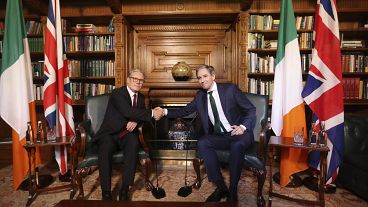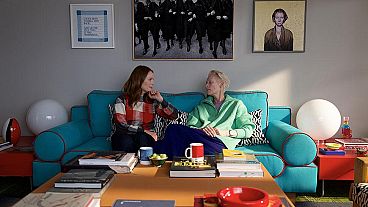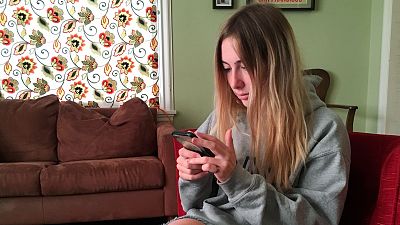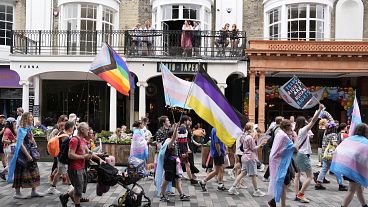The study claims that autism symptoms were reversed in twins through personalised lifestyle and environmental interventions.
A groundbreaking study that claims its subjects had their autism reversed through dietary and therapeutical interventions has been blasted by advocacy groups and experts on the neurodiverse condition as “deeply insulting”.
In recent years, the prevalence of autism and the awareness surrounding it have significantly increased, leading to more discussions about neurodiversity and the inclusion of individuals with autism in society.
According to the World Health Organization (WHO), approximately one in 100 children worldwide are diagnosed with autism spectrum disorder (ASD).
This has led to a growing emphasis on acceptance and integration, as many experts recognise autism as a lifelong condition.
However, a recent report from the University of Maryland in the US has challenged these notions by offering new insights into the potential "reversal of autism symptoms" through a study involving fraternal twins.
The study used a personalised approach focused on lifestyle and environmental modifications, along with various clinical interventions, on two twin girls, referred to as "Twin P" and "Twin L" in the paper.
Both girls were diagnosed with Level 3 severity ASD at approximately 20 months.
Two years of interventions
According to the report, the twins exhibited symptoms such as limited verbal and non-verbal communication, repetitive behaviours, rigidity around transitions, and gastrointestinal issues.
The twins then underwent a two-year programme of interventions aimed at reducing "total allostatic load," which refers to minimising the cumulative impact of chronic stress and environmental factors.
Some of these interventions included dietary changes, taking supplements, different personalised therapies and environmental modifications along Applied Behavior Analysis (ABA) in the first year.
The findings were published in the Journal of Personalized Medicine.
The girls were put on a gluten-free, casein-free diet, which was also low in sugar, and free of any artificial colours and ultra-processed foods.
"An emphasis was placed on consuming organic, unprocessed, freshly prepared and home-cooked food from local sources, when possible. The family also consulted with a dietician for guidance around these dietary interventions," the study reads.
"A number of dietary supplements, including omega-3 fatty acids, a multivitamin, vitamin D, carnitine, 5-methyltetrahydrofolate, and bio-individualized homoeopathic remedies were taken by both girls. A combination of labs and genomic information were utilised to inform dietary supplementation," it continued.
Both twins also engaged in occupational therapy with a focus on neuro-sensory motor reflex integration, which is a technique believed to support nervous system regulation according to the paper.
Moreover, the family of the twins worked on reducing environmental toxicants in the twins' living home by improving indoor air quality and minimising exposure to potential stressors.
The paper reports that the twins made significant improvements within several months of implementing the interventions.
This was observed through the reduction of their Autism Treatment Evaluation Checklist (ATEC) scores, with Twin P's scores dropping from 76 to 32, a change referred to as "a kind of miracle" by one of the paediatricians, and Twin L's scores decreasing from 43 to 4.
These improvements were also sustained over a six-month follow-up period.
"While prospective studies are required, this case offers further encouraging evidence of ASD reversal through a personalised, multidisciplinary approach focusing predominantly on addressing modifiable environmental and lifestyle risk factors," the paper states.
‘Deeply insulting’
The published study has faced backlash from various autism advocacy groups and online communities.
The UK-based National Autistic Society described it as "deeply insulting to the more than 700,000 autistic people in the UK".
In a post on X, the organisation added, "this is a case study of a single set of twins using interventions that are themselves questionable. There are absolutely no conclusions at all that can be drawn from this and to suggest otherwise is just irresponsible journalism".
Autism is widely regarded as a lifelong condition that cannot be reversed, though its characteristics and traits may improve with various interventions.
The use of Applied Behavior Analysis (ABA), which the study included, has also been subject to debate.
Some experts consider it a notable behavioural approach that can help treat symptoms of ASD.
However, the National Autistic Society notes that while ABA is one of the most researched autism treatments, there are "significant limitations and gaps in the research, particularly about long-term effects".
They also highlight that some current uses of ABA are "not sufficiently person-centred" and "too intensive".
The study continues to face criticism from online communities.
One user on X wrote, "This could not be any worse. Scientists did not ‘discover’ anything based on ONE ethically questionable case study".
Many have also criticised the study for encouraging the notion that autism is an illness requiring treatment and a cure, a view many people advocate against.
According to a report by the NHS, “being autistic does not mean you have an illness or disease. It means your brain works in a different way from other people".
"It's something you're born with. Signs of autism might be noticed when you're very young, or not until you're older".
Euronews Health has reached out to the paper's corresponding author for comment.















